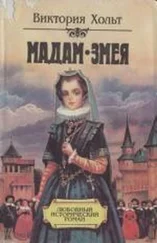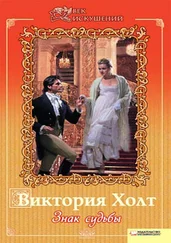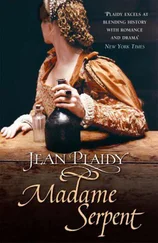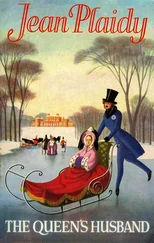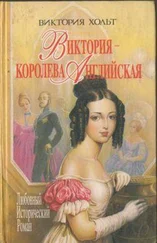“Yes,” said the King, “and what manner of man was this More?”
“Of medium height, I should say, Sire. Of bright complexion. And he had merry eyes and a way of speech that provoked much laughter.”
“Methinks his way of speech provoked much parsimony in our Parliament. And that we will not have. Is that all you can tell us?”
“That is all, Sire.”
The King waved his hand, and the Prince, bowing, went back to his stool.
“He should be heavily fined,” declared the King.
“He is not a rich man, Your Grace,” murmured Empson. “A scholar, a writer, a lawyer … little could be extorted from him.”
The King could trust his henchmen, Empson and Dudley. They were of his own kind. They had their private greed; they enriched themselves while they enriched the King.
“He has a father, Sire,” said Dudley.
“Who,” added Empson, “might be good for a hundred pounds.”
“Put him in the Tower.”
“On the charge of possessing a disloyal son, Your Grace?”
“Nay. Nay. You know better than that. Look into his affairs, then bring some charge against him. See what goods he hath; then we will decide on the fine. And do so with all speed.”
The King wished to be alone with his son.
The boy, when he had stood before him, had aroused anxieties within him and temporarily they had swamped his anger at the failure to obtain as much money as he wished. This was because of the boy's appearance; the proud set of the head on the shoulders, the dazzlingly fair skin, the vital hair that was almost the color of gold, the small sensual mouth, the bright blue eyes had reminded the King so vividly of the boy's maternal grandfather; and he remembered the profligacy of that man.
He felt the need, therefore, to talk with his son immediately.
When they were alone he addressed him. “Henry.”
The boy rose at once, but his father went on, “Nay; stay where you are. No ceremony whilst we are alone. Now I would speak to you as father to son.”
“Yes, Father.”
“One day, my boy, you will be king of this realm.”
“Yes, Father.”
“Three years ago, we did not know that you were destined for such greatness. Then you were merely the King's second son, who, your father had decided, should become Archbishop of Canterbury. Now your steps are turned from Church to Throne. My son, do you know that the cares of kingship outweigh the glory and the honor?”
The boy answered, “Yes, Father.”
But he did not believe this. So it might be with lean, pale men such as his father, whose thoughts were all of filling their coffers; but if a king were young and handsome and the eyes of ladies lightened as they rested upon him, and those of the young men were warm with envy and admiration, that was a different matter. The glory and the honor could outweigh the care; and if they did not do so in the case of Henry the Seventh, Henry the Eighth would see to it that they did so for him.
“Many temptations come to kings, my son. You would do well to study the history of those who have gone before.”
“That I do, Father. My Lord Mountjoy insisted that I did so when he tutored me.”
“There are times when a king is beset on all sides, when traitors rise and threaten him. Then he must act with speed and wisdom.”
“I know it, Sire.”
“You know then why I wish you to be present at our councils. I hope you do not spend your time staring idly through the windows, dreaming of sport and pleasure. I would have you learn from what you hear at these our meetings.”
“I do, Father.”
“There are some who would have sent that fellow More to the Tower and would have had his head on London Bridge for what he has done. But such acts are folly. Remember this: Let the people think that the Parliament guides the King; but let the members of the Parliament know that the King has a hundred ways of striking at them if they obey him not.”
“The people are not pleased,” said the boy boldly. “They like not taxes, and they say that there have been too many taxes. They murmur against Dudley and Empson.” He dared not say they murmured against the King, but he knew the people would never love his father as he believed they would love his fathers son. When he went into the streets they called his name. “God bless the Prince! God bless Prince Hal!” The sound of their cheers was sweeter than the music of his lute, and he loved his lute dearly. His father could not tell him how a king should behave.
“There must be those to do a king's work,” said King Henry, “and if it be ugly work, then it is the duty of those to bear the reproaches of the people. My son, you will one day be not only a king, but a rich king. When I slew the traitor Crookback at Bosworth Field and took the crown, I found I had inherited a bankrupt kingdom.”
“A right noble act it was to slay the traitor!” said the boy.
“Yet coming to the throne as we have done is a dangerous way. Never forget it. Be watchful. Above all, learn from those who have gone before. Use the lessons of the past to overcome the dangers of the future. You remind me of your grandfather, great King Edward, for you have something of his lineaments and his stature. Ah, there was a man!”
Father and son smiled as they thought of the boy's grandfather.
With his beauty and charm, thought the King, he lured taxes from his peoples pockets and he called them “Benevolences.” Oh, for such power!
He roamed the countryside as an ordinary gentleman, thought the Prince; and such was his charm and beauty that no woman could resist him. Oh, for such power!
The sun's rays slanted through the windows of Richmond Palace and as the father began to talk to the son of the delights and dangers of kingship, they ceased to think of Thomas More.
* * *
MEANWHILE IN the grounds of a pleasant old mansion in the little village of Stepney, the object of the King's wrath was walking arm in arm with one of his greatest friends, his confessor, Dr. John Colet, a man whose wit and learning delighted him almost as much as the affection they bore each other.
Colet, some ten years older than Thomas More, was listening gravely to his friend's account of what had happened in the Parliament.
He shook his head. “'Twas a brave act, I'll grant you; but there is a point in human nature where bravery may be called folly, and folly, bravery.”
“Is it better to be a brave fool or a wise coward? Tell me that, John. I love the wise; I love the brave; and I love not cowards nor fools. What a perverse thing is life when the wrong partners walk together!”
John Colet was in no mood for laughter. He was alarmed.
“Had it been anything but money, the King would have been the more ready to forgive you.”
“Had it been anything but money, would the King have been begging it from his Parliament? Nay, the King loves money. He loves the color of gold. He loves the sight of gold in his coffers … gold plate … gold coins. He rejoices in the knowledge that he is not only a king, but a rich king.”
“Friend Thomas, there is one thing you should take to heart. Now, I am an older man than you are….”
“I know it, thou graybeard.”
“Then know this also: If you wish to make an enemy of the King, get between him and the money he hopes to win. Thus— and more quickly than in any other way—can you rouse his wrath. And, Thomas, remember this now and for ever: It is a perilous thing to set yourself against a king.”
“It is an even more perilous thing to set oneself against one's conscience, John. Tell me this: Should the King be allowed to impose such taxes on his people? You yourself have often said it should not be so. Come, admit it.”
“What we have said, we have said in the circle of our friends. It is another matter to say such things in Parliament.”
Читать дальше


